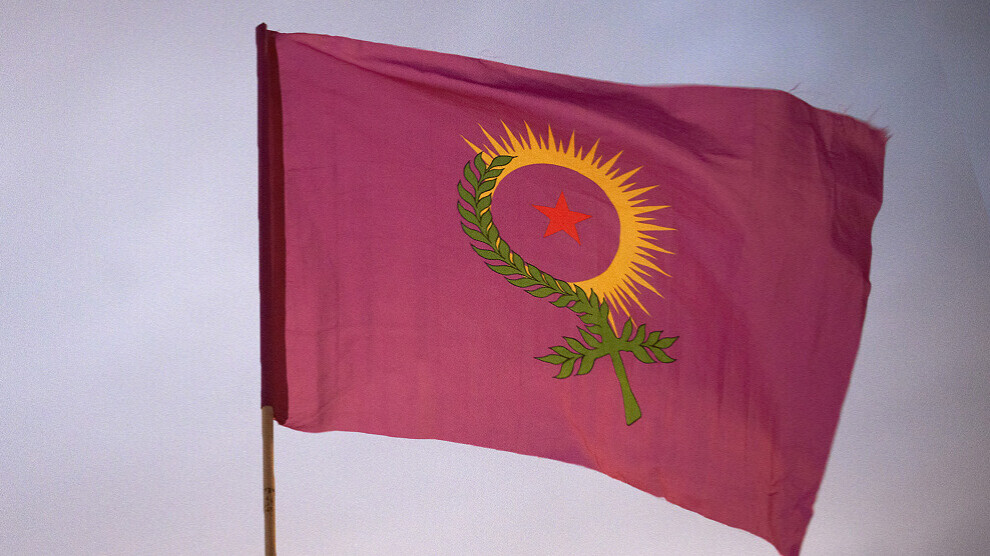Celebrations in Rojava mark ninth anniversary of KJK
In 2005, the Kurdish women's movement decided to reorganize itself under the umbrella of the KJB. Nine years later, the Community of Kurdistan Women emerged from this.
In 2005, the Kurdish women's movement decided to reorganize itself under the umbrella of the KJB. Nine years later, the Community of Kurdistan Women emerged from this.

In several cities in the autonomous region of Northern and Eastern Syria, numerous women came together to celebrate a special day: the founding anniversary of the Komalên Jinên Kurdistanê (Community of Kurdistan Women, KJK for short). On 18 April 2005, after years of confrontation with patriarchy, the Kurdish women's movement decided to reorganize itself under the umbrella of the Koma Jinên Biling (High Council of Women, KJB).
The KJK emerged from this in spring 2014. This was not just a name change, but a restructuring in line with democratic confederalism as conceptualized by Abdullah Öcalan - a model based on the principles of council democracy, feminism, ecology and pluralism, which fundamentally criticizes the nation state.
Kongra Star – sister association of the KJK and umbrella organization of the women’s liberation movement in Northern and Eastern Syria – invited people to the anniversary celebrations. In Kobanê, the women organized an event at the Baqî Xido Art and Cultural Center. The hall was decorated with KJK flags and pictures of women who died in the Kurdish liberation struggle, as well as the portrait of Abdullah Öcalan. The program included political speeches, dance and music presented to an audience exclusively composed by women, many of them in colorful dresses and traditional costumes.
Peyman Elûş from the Kongra Star Coordination gave a brief outline of the history of the KJK and appreciated its role in the realization of Democratic Confederalism. With the paradigm shift to this project, which is based on a radically democratic, gender-free and ecological society, Abdullah Öcalan, as the pioneer of the Kurdish liberation struggle in the early 2000s, set the goal of deeper democratization and emancipation from patriarchy and rule before the liberation of the region and nation. “Women played a leading role in this turning point. Because our organization in the form of women's communes, women's councils and cooperatives formed a large part of the Kurdistan liberation movement's efforts for independence and self-government. We have been successfully putting this model into practice since the Rojava Revolution.”
Further celebrations took place as part of tree planting campaigns in Raqqa, Manbij and Tabqa, among others. The Arab women's organization Zenobiya and the Kurdish women's cultural movement Hîlala Zêrîn invited people there, and in Raqqa there was also a celebration with a picture exhibition. In Hesekê, the Abdullah Öcalan Park was expanded to include a rose garden. Around a hundred cuttings of different varieties were planted, also at the initiative of the women of Zenobiya and Hîlala Zêrîn.